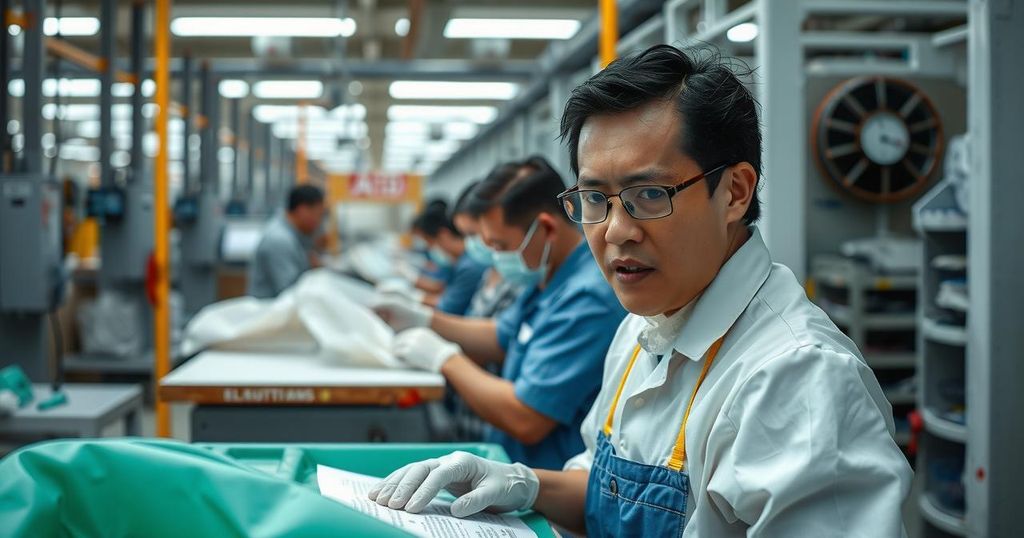BYD Denies Reports of Poor Worker Conditions at Brazilian Factory Site
BYD has rejected accusations of poor working conditions at its factory construction site in Brazil, calling the claims a smear campaign against Chinese businesses. Reports mention the rescue of 163 workers under alleged slave-like circumstances, with BYD responding by terminating their contract with the involved contractor and seeking improvements in working conditions.
BYD, the prominent Chinese automaker, has categorically denied allegations regarding poor working conditions at its Brazilian factory site. A spokesperson for the company, Li Yunfei, condemned these reports as intentional attempts to discredit Chinese brands and damage Sino-Brazilian relations. The allegations emerged after a task force led by Brazilian prosecutors rescued 163 Chinese workers purportedly living in substandard conditions at the construction site, where the lack of proper amenities was highlighted in disturbing visuals.
The situation at the BYD factory in Brazil brings to light significant global concerns regarding labor conditions, particularly in developing countries. Reports of dire living conditions, including inadequate sanitation facilities and withheld wages, have prompted scrutiny over labor practices among international corporations. BYD’s response indicates a growing tension between maintaining corporate image and adhering to local labor standards. As a major player in the electric vehicle market, BYD’s handling of this issue is critical both for its reputation and for the broader narrative of corporate responsibility.
In conclusion, BYD’s swift dismissal of the allegations concerning poor worker conditions reflects a broader trend of companies facing accountability. While BYD has taken steps to rectify the situation by terminating its contractor, the serious nature of the claims necessitates thorough investigation. Both the Chinese automaker and the involved contractors must address these issues to uphold labor rights and ensure fair conditions for all workers in the future.
Original Source: www.business-standard.com








Post Comment